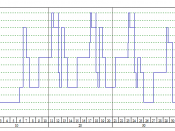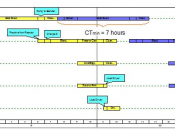Abstract
This paper is based on an article about Self-Managed Work teams and how these teams may seem to be a wonderful idea; however, have more disadvantages than advantages. Self-Managed Work Teams are designed to take over more functions within a company and produce higher levels of success. Functions like: work and production scheduling, work assignments, administrative duties and many more. These teams are well trained and chosen from employees within the company. As good as Self-Managed Work Teams seem to be, there are many negative aspects to the teams. With the functions mentioned above being done by these teams, it is taking business away from management and raising expenses within the company. These teams allow employees to contradict each other and put a strain on the goal at hand.
Self-Managed Work Teams Just Don't Work
A Self-Managed Work Team has the power to manage their own work, set their own goals and take on many duties that a company usually gives to different managers in different fields.
Companies to date, based on the many reports that have been done on how effective these teams can be, have implemented these type teams to further advance their companies. Self-Managed Work Teams have many different: strengths, responsibilities and challenges facing them; but do companies actually know what all of these issues, good and bad, are?
Companies should know the tasks these teams are capable of producing. These teams are made up of different members of a company, with different back grounds, that allow them to accomplish particular goals the company maybe facing, whether good or bad.
These teams can be seen in many different manners with many different functions. Most "Self-Managed Work Teams can be characterized by features such as multiple skills, common purpose, interdependence, authority and accountability". (Teams, Chaneski 1)...



Yeaaaaa
i guess ur right but still some work better like this but i guess ur idea works
0 out of 0 people found this comment useful.